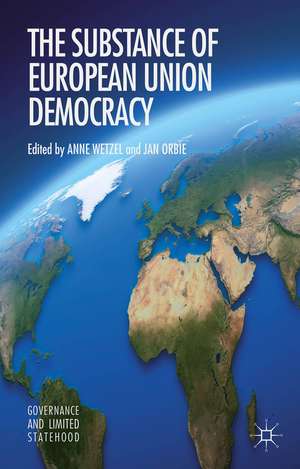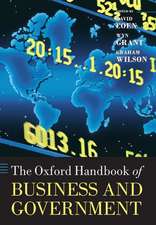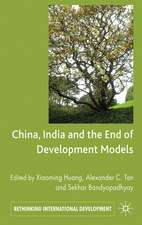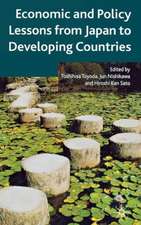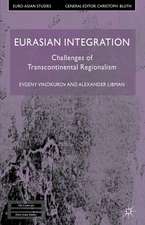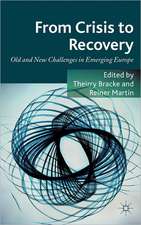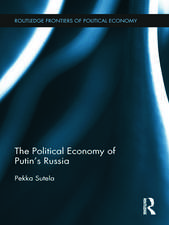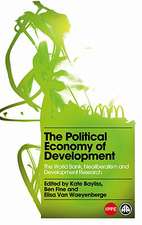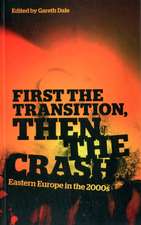The Substance of EU Democracy Promotion: Concepts and Cases: Governance and Limited Statehood
Editat de A. Wetzel, J. Orbieen Limba Engleză Hardback – 26 feb 2015
| Toate formatele și edițiile | Preț | Express |
|---|---|---|
| Paperback (1) | 386.81 lei 43-57 zile | |
| Palgrave Macmillan UK – 2015 | 386.81 lei 43-57 zile | |
| Hardback (1) | 392.97 lei 43-57 zile | |
| Palgrave Macmillan UK – 26 feb 2015 | 392.97 lei 43-57 zile |
Din seria Governance and Limited Statehood
-
 Preț: 394.51 lei
Preț: 394.51 lei - 15%
 Preț: 644.95 lei
Preț: 644.95 lei -
 Preț: 397.38 lei
Preț: 397.38 lei -
 Preț: 389.31 lei
Preț: 389.31 lei -
 Preț: 389.11 lei
Preț: 389.11 lei -
 Preț: 388.72 lei
Preț: 388.72 lei - 15%
 Preț: 644.18 lei
Preț: 644.18 lei -
 Preț: 390.63 lei
Preț: 390.63 lei -
 Preț: 391.61 lei
Preț: 391.61 lei -
 Preț: 386.39 lei
Preț: 386.39 lei -
 Preț: 389.88 lei
Preț: 389.88 lei -
 Preț: 392.21 lei
Preț: 392.21 lei - 18%
 Preț: 781.62 lei
Preț: 781.62 lei - 18%
 Preț: 723.51 lei
Preț: 723.51 lei - 18%
 Preț: 723.21 lei
Preț: 723.21 lei -
 Preț: 226.45 lei
Preț: 226.45 lei - 15%
 Preț: 639.08 lei
Preț: 639.08 lei - 18%
 Preț: 727.66 lei
Preț: 727.66 lei
Preț: 392.97 lei
Nou
Puncte Express: 589
Preț estimativ în valută:
75.19€ • 78.72$ • 62.22£
75.19€ • 78.72$ • 62.22£
Carte tipărită la comandă
Livrare economică 07-21 aprilie
Preluare comenzi: 021 569.72.76
Specificații
ISBN-13: 9781137466310
ISBN-10: 1137466316
Pagini: 336
Ilustrații: XVIII, 312 p.
Dimensiuni: 140 x 216 x 19 mm
Greutate: 0.53 kg
Ediția:2015
Editura: Palgrave Macmillan UK
Colecția Palgrave Macmillan
Seria Governance and Limited Statehood
Locul publicării:London, United Kingdom
ISBN-10: 1137466316
Pagini: 336
Ilustrații: XVIII, 312 p.
Dimensiuni: 140 x 216 x 19 mm
Greutate: 0.53 kg
Ediția:2015
Editura: Palgrave Macmillan UK
Colecția Palgrave Macmillan
Seria Governance and Limited Statehood
Locul publicării:London, United Kingdom
Cuprins
1. The Substance of EU Democracy Promotion: Introduction and Conceptual Framework; Anne Wetzel PART I: ALTERNATIVE REFLECTIONS ON THE EU AS A LIBERAL DEMOCRACY PROMOTER 2. Law Perspective: Praise Undeserved? The EU as a Democracy Promoter: A Skeptical Account; Dimitry Kochenov 3. Political Economy Perspective: Fuzzy Liberalism and EU Democracy Promotion: Why Concepts Matter; Milja Kurki 4. Critical Social Theory Perspective: Embeddedness as Substance: The EU's Socialized Approach to Democratization; Jessica Schmidt 5. Governance Perspective: Democratic Governance Promotion through Functional Cooperation; Anne Wetzel PART II: COUNTRY CHAPTERS 6. Addressing the Remnants of a Communist Past through Accession: Slovakia and the Czech Republic; Eline De Ridder 7. Different Trajectories yet the Same Substance: Croatia and Turkey; Canan Balk?r and Müge Aknur 8. Promoting Democracy in Post-Conflict Societies: Bosnia and Herzegovina and Kosovo; Labinot Greiçevci and Bekim Çollaku 9. Power Relations Meet Domestic Structures: Russia and Ukraine; Susan Stewart 10. Neither Integrated Nor Comprehensive in Substance: Armenia and Georgia; Hrant Kostanyan 11. Democracy through the Invisible Hand? Egypt and Tunisia; Vicky Reynaert 12. When Security Trumps Democracy: Israel and Palestine; Benedetta Voltolini and Federica Bicchi 13. Favouring Leaders over Laggards: Kazakhstan and Kyrgyzstan; Fabienne Bossuyt and Paul Kubicek 14. Democracy Promotion in Restrictive Environments: Ethiopia and Eritrea; Karen Del Biondo 15. Responding to Political Crises in the South Pacific: The Solomon Islands and Fiji; Maurizio Carbone and Karen Del Biondo 16. Much Ado about Nothing? Brazil and Venezuela; Andrea Ribeiro Hoffmann PART III: CONCLUSIONS 17. Conclusions; Anne Wetzel and Jan Orbie
Recenzii
“It addresses a very important and challenging topic by offering extremely rich and well-organised material. … book is balanced both in terms of depth of analysis and breadth of empirical evidence. The use of a solid theoretical framework, the smart selection of cases, and a wide range of primary and secondary resources make the book a reliable source of information and insights for researchers and students … . an engaging and substantial addition to the democratisation and democracy promotion literature.” (Aijan Sharshenova, Europe-Asia Studies, Vol. 68 (2), 2016)
“The editors have gathered a good group of contributors predominantly with area expertise which guarantees the empirical research. … In any case, the book is a highly valuable addition to the literature on democracy promotion.” (Carlos Closa Montero, JCMS Journal of Common Market Studies, Vol.54 (6), 2016)
“The editors have gathered a good group of contributors predominantly with area expertise which guarantees the empirical research. … In any case, the book is a highly valuable addition to the literature on democracy promotion.” (Carlos Closa Montero, JCMS Journal of Common Market Studies, Vol.54 (6), 2016)
Notă biografică
Müge Aknur, Dokuz Eylül University, Turkey. Canan Balk?r, Dokuz Eylül University, Turkey. Federica Bicchi, London School of Economics and Political Science, UK. Fabienne Bossuyt, Ghent University, Belgium. Maurizio Carbone, University of Glasgow, UK. Bekim Çollaku, Prime Minister's Cabinet, Kosovo. Karen Del Biondo, Freie Universität Berlin, Germany. Eline De Ridder, Flemish Department of Education and Training, Belgium. Labinot Greiçevci, Research Institute of Development and European Affairs (RIDEA), Kosovo. Dimitry Kochenov, University of Groningen, the Netherlands. Hrant Kostanyan, Ghent University, Belgium. Paul Kubicek, Oakland University, USA. Milja Kurki, Aberystwyth University, UK. Vicky Reynaert, independent scholar. Andrea Ribeiro Hoffmann, Freie Universität Berlin, Germany. Jessica Schmidt, Centre for Global Cooperation Research, Duisburg, Germany. Susan Stewart, German Institute for International and Security Affairs (SWP), Germany. Benedetta Voltolini, Maastricht University, the Netherlands.
